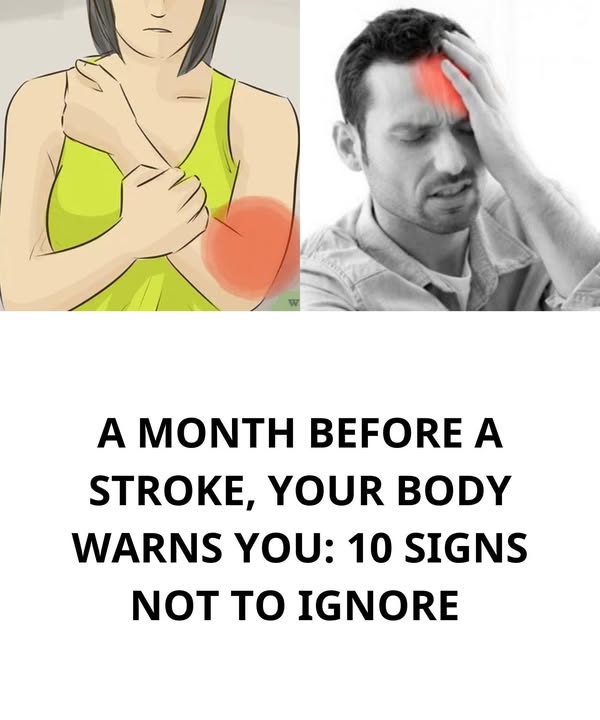Strokes are a medical emergency that require immediate attention, but did you know that your body often sends warning signs weeks before one occurs? Recognizing these symptoms early could mean the difference between life and death. In this article, we’ll break down what a stroke is, its different types, and the 10 crucial warning signs you should never ignore.
What Is a Stroke?
A stroke occurs when blood flow to the brain is interrupted, cutting off oxygen supply to brain cells. This can cause permanent damage, disability, or even death. There are three main types of strokes:
- Ischemic Stroke: The most common type, caused by a blocked artery due to a blood clot or cholesterol buildup.
- Hemorrhagic Stroke: Caused by bleeding in the brain due to a ruptured blood vessel, aneurysm, or head injury.
- Transient Ischemic Attack (TIA): Often called a “mini-stroke,” it’s a temporary blockage that resolves itself, but it serves as a major warning sign of a future stroke.
The symptoms of a stroke depend on which part of the brain is affected, but some warning signs can appear weeks or even months before a full stroke occurs. Let’s explore these crucial symptoms.
10 Warning Signs of a Stroke You Shouldn’t Ignore
1. Sudden Exhaustion
Feeling unusually tired or experiencing extreme fatigue without explanation? This could be a sign that your brain is struggling with reduced blood flow. If exhaustion persists despite rest, it’s time to consult a doctor.
2. Visual, Auditory, or Olfactory Hallucinations
eeing flashes of light, hearing strange sounds, or smelling things that aren’t there could indicate a neurological issue. If these symptoms appear suddenly and without reason, they may be a precursor to a stroke.
3. Facial Paralysis or Numbness
One of the most recognizable signs of an impending stroke is sudden numbness or paralysis, usually on one side of the face. If you notice an uneven smile or a drooping eyelid, seek medical attention immediately.
4. Tunnel Vision or Sudden Vision Loss
Losing peripheral vision or experiencing blurred sight can signal reduced blood flow to the brain. If your vision suddenly changes in one or both eyes, don’t ignore it—it could be an early warning sign of a stroke.
5. Loss of Coordination and Balance
Are you suddenly stumbling, feeling dizzy, or struggling to maintain your balance? If these issues persist, it could indicate a problem with blood circulation in the brain.
6. Speech Difficulties
Slurred speech, trouble finding words, or difficulty understanding others can be an early symptom of an impending stroke. If communication becomes challenging, don’t wait—seek medical advice immediately.
Unexplained Severe Headaches
Frequent headaches that feel different from your usual migraines—especially if they are sudden and intense—may indicate a stroke in progress. If pain medication doesn’t help, this is a red flag.
8. Sudden Mood Swings or Memory Loss
Uncharacteristic irritability, confusion, or forgetfulness can be signs that the brain isn’t functioning properly. Small memory lapses may seem harmless, but they could be early indicators of an impending stroke.
9. Shortness of Breath or Chest Pain
A stroke doesn’t just affect the brain—it can also impact the heart. If you experience sudden shortness of breath, chest discomfort, or an irregular heartbeat, this may suggest an increased risk of stroke.
